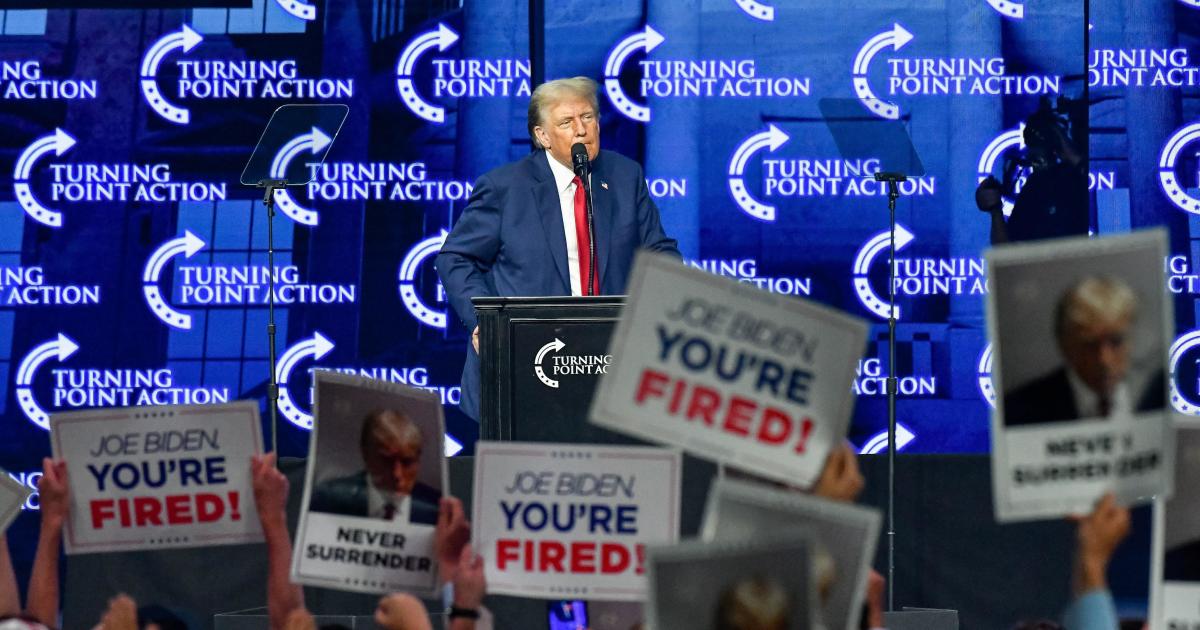Detroit — The Detroit convention center, once the epicenter of conspiracy theories and baseless claims of voter fraud, saw a resurgence of political activity last weekend as thousands of Republicans gathered to gear up for the upcoming rematch between Donald Trump and Joe Biden in November. This time around, discussions about election integrity and debunked allegations of voter fraud were prevalent, aiming to rally GOP voters to show up in full force at the polls.
The event, dubbed “The People’s Convention,” was organized by Charlie Kirk, a prominent figure in the conservative grassroots organization Turning Point Action. Kirk wasted no time in setting the tone for the event by referring to the convention center as a “crime scene.” He revisited the unfounded assertions that thousands of illegal mail-in and early ballots had been surreptitiously delivered and counted in secrecy, leading to an alleged stolen victory for President Biden.
However, it is essential to note that a Michigan judge had previously dismissed these claims, ruling them as “incorrect and not credible.” Despite this, Kirk, along with Turning Point Action, the Trump campaign, and the Republican National Committee, are now working together to encourage GOP voters to embrace various voting options, including in-person early voting, mail-in absentee voting, and drop boxes.
One of the primary goals of Kirk’s group is to recruit a team of a thousand organizers in battleground states to mobilize conservative voters, urging them to register and make plans to cast their ballots in November. Moreover, they aim to instill confidence in voters that their votes will be counted accurately, regardless of the voting method they choose. Rebuilding trust in the electoral process is a challenging task, as both Kirk and Lara Trump acknowledge.
Kirk admitted that there is still hesitancy and skepticism among Republicans, particularly regarding mail-in balloting. He referenced Kari Lake’s loss in the 2022 Arizona governor’s race as a pivotal moment that prompted him to advocate for embracing what he calls “Election Month,” rather than focusing solely on Election Day.
Reflecting on the Arizona election results, Kirk stated, “It triggered a lot of introspection on our team. And I was like, why are we not embracing, you know, this sort of methodology, we might not love it, but losing feels a lot worse. I think that the movement is looking at it the same.”
He emphasized the need for Republicans to adapt to changing voting trends and expand their outreach efforts beyond the traditional Election Day model. Kirk stressed the importance of engaging low-propensity voters within a longer voting window to maximize voter turnout.
Despite these efforts, the challenge remains in convincing GOP voters who have been inundated with claims of a rigged and stolen 2020 election for the past four years. The lingering doubts and concerns surrounding the electoral process may hinder the party’s ability to mobilize its base effectively.
As the Republican Party continues to navigate the aftermath of the 2020 election and prepare for the upcoming rematch between Trump and Biden, the debate over election integrity and voter fraud is likely to remain a central theme. The success of the GOP’s voter mobilization efforts in November will depend on its ability to address these concerns and rebuild trust among its supporters.









